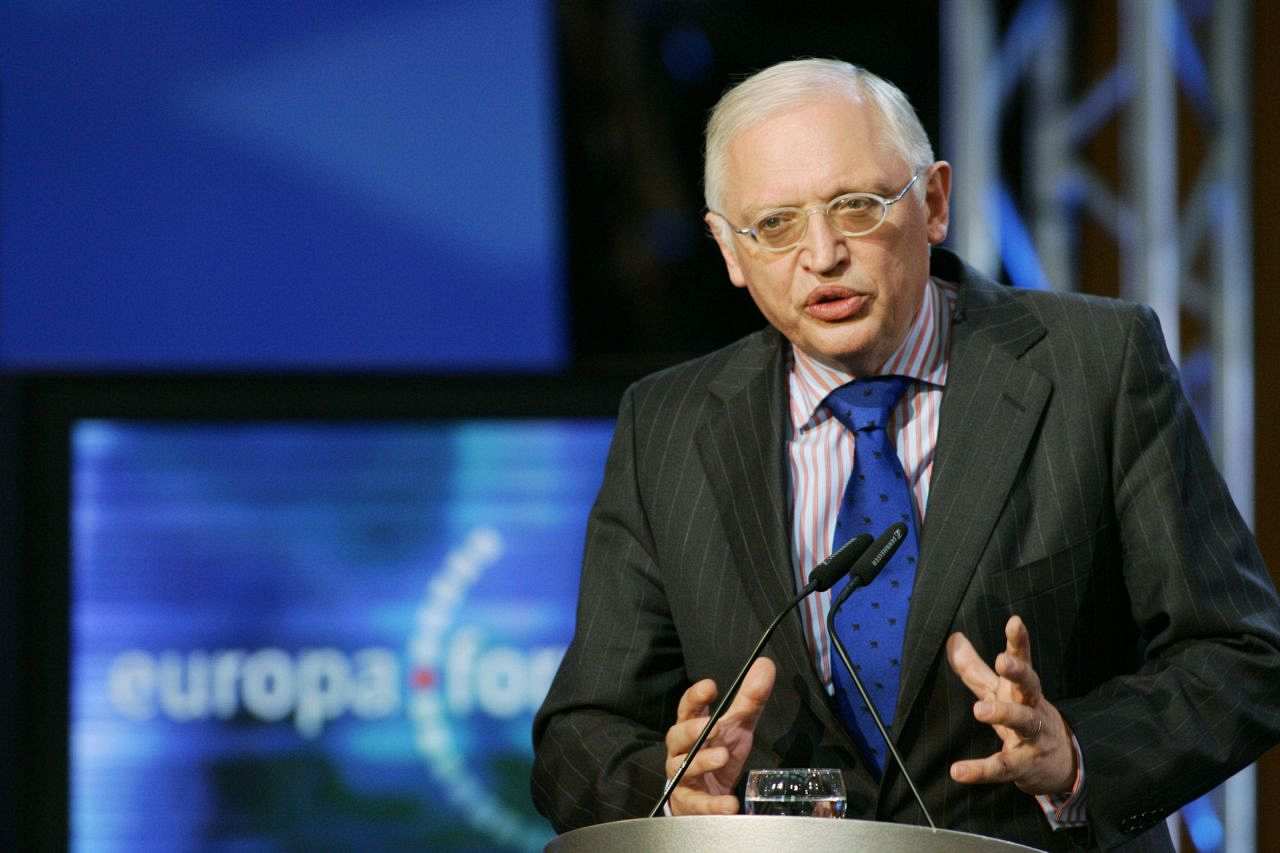The Annan experience was devastating for Turkish Cypriots. Who can blame them for being cynical about future talks?
If we take August 1960 as the year of the shotgun wedding between the Turkish and Greek Cypriot communities, December 1963 as their separation, and July 1974 as their divorce, the Annan referendum of 2004 must surely represent the date of a fresh proposal for reconciliation and re-marriage. Sadly, the consequence of this proposal was the Turkish Cypriot bride being jilted at the altar, and the Greek Cypriot groom marrying someone else a week later. How did this happen? What does the future hold for future relationships?
The then United Nations Secretary-General Kofi Annan, working closely with the Turkish and Greek Cypriot leaders, UK, Greece, Turkey and the European Union developed a plan to address the long-standing Cyprus problem over a four-year period. This was concluded in April 2004. It was linked to the accession of Cyprus and Turkey into the EU, with Cyprus joining immediately, and Turkey following suit at the earliest time thereafter.
The final version of the Annan plan proposed that the numbers of mainland Greek and Turkish troops stationed in Cyprus be reduced dramatically (from approximately 30,000) to 6,000 with immediate effect, reducing to 3,000 on January 1, 2011 and reducing again to 950 Greek and 650 Turkish troops on January 1, 2018. If Turkey joined the EU earlier, the latter numbers would apply on that date. It also included concessions of land transfers from the north to the south including Morphou and Varosha. A sophisticated power-sharing formula was also developed for implementation as a bizonal, bicommunal federation.
A border crossing point in Nicosia opened on April 23, 2003 for the first time after 29 years, which facilitated the movement of Cypriots in both directions. The vast majority of Turkish Cypriots who crossed over to the south found a world that was sparkling with wealth and vigour as compared with their impoverished north, weighed down by social and economic embargoes. In particular, young Turkish Cypriots discovered unbridled fun when they visited holiday resorts such as the post-1974 established Ayia Napa. They also enjoyed taking part in EU-sponsored “peacenik” music and dance festivals and making new friends. All this captured their imagination for a peaceful and prosperous future based not on Hellenism or Ottomanism, but on a brand-new Cypriot identity. So, in the run-up to the Annan plan referendum, thousands of mostly young Turkish Cypriots carried out rallies to the cries of “Yes, be annem!” (Yes, mama!).
On the Greek Cypriot side, former Cyprus presidents Glafcos Clerides and George Vassiliou called a rally before the referendum to promote a Yes vote and complained that the benefits of the plan had been kept from the public by new president Tassos Papadopoulos and his media associates.
The left leaning Turkish Cypriots and politicians were quite dismayed when, just before the referendum, not only nationalist Papadopoulos but also the communist Akel party leader Demetris Christofias, both of whom had been supporting the Yes vote all along advised Greek Cypriot voters to vote No. I would refer readers to an article by Leontios Ierodiakonou which provides extraordinary insight into how the rejection of the plan by Papadopoulos came so late in the day.
Reacting to Papadopoulos and Christofias’ late rejection, Gunter Verheugen, the enlargement commissioner who helped Cyprus into the EU, told the European parliament on April 21, 2004 that he felt “disappointed” and “cheated” by the Greek Cypriot government. “For months on end I have done everything I could in good faith to make it possible for the Greek Cypriot side to accept this plan on the understanding that this is what they intended to do. Now things look very different,” he said.
As anticipated, the result of the referendum was an enthusiastic Yes vote from the Turkish Cypriots (65 per cent) and an overwhelming No vote from the Greek Cypriots (76 per cent).
This drew the ire of virtually all international actors against the Greek Cypriot leadership, and an outpouring of sympathy towards the Turkish Cypriot community. Having voted for a European future, they were, after all, going to be excluded, whereas the Greek Cypriot community, which had voted No would be welcomed into the EU (this took place a week after the referendum).
The UN secretary-general, the European Commission, the Council of Europe, the EU Parliament, and official representatives of the UK, United States, France, Germany, Netherlands, Belgium, Austria, Czech Republic and Sweden expressed their disappointment to the No vote. They variously pledged their economic and political support for the Turkish Cypriots, who had been left out in the cold, and many pledged to support the removal of the unfair embargoes.
Sadly, these promises were not kept. A myriad of embargoes are still placed on northern Cyprus. For example, a direct trade regulation for trade between northern Cyprus and the EU was drawn up in 2004 and still exists to this day, but it has never been implemented. Turkish Cypriot football teams are excluded from competing with teams from other countries.
Much has changed since 2004. I outline these, and the insurmountable challenges facing any Greek Cypriot leader in implementing a new Cyprus solution in a previous article.
Even the most ardent pro-federation Turkish Cypriot politicians, some being veterans of the Annan Plan (2004) and Crans-Montana (2017) negotiations are declaring quite openly that there is no trust in any of the current Greek Cypriot leaders to deliver a new solution, and claim that they are “status-quo” protagonists in disguise.
The Annan experience was the mother of all betrayals – the Turkish Cypriots were betrayed by Greek Cypriot politicians, the European Union, and the United Nations. The only country that stood by them was Turkey. Who can blame Turkish Cypriots for being cynical about future negotiations?
Perhaps self-sufficiency is the only way forward for Turkish Cypriots, despite the obstacles. As Billie Holliday sang:
Them that’s got shall get
Them that’s not shall lose
So the bible said and it still is news
Yes, the strong get smart
While the weak ones fade
But God bless the child that’s got his own
(lyrics abridged for brevity)
Fahri Zihni is former chair of Council of Turkish Cypriot Associations (UK), a former policy advisor at the UK’s Cabinet Office and a former president of the Society of IT Management, UK







Click here to change your cookie preferences